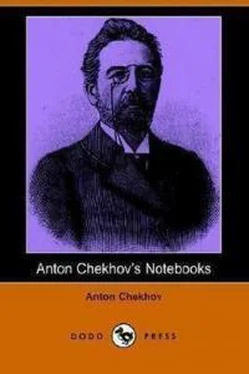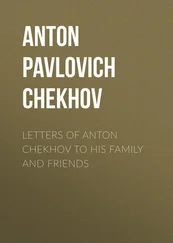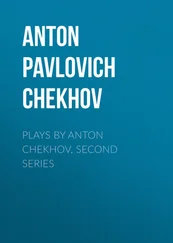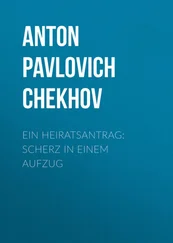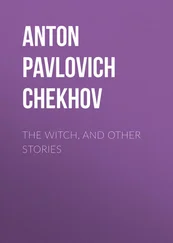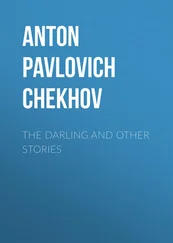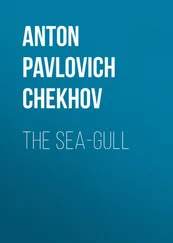Антон Чехов - Notebooks of Anton Chekhov
Здесь есть возможность читать онлайн «Антон Чехов - Notebooks of Anton Chekhov» весь текст электронной книги совершенно бесплатно (целиком полную версию без сокращений). В некоторых случаях можно слушать аудио, скачать через торрент в формате fb2 и присутствует краткое содержание. Год выпуска: 2014, Издательство: epubBooks Classics, Жанр: Биографии и Мемуары, на английском языке. Описание произведения, (предисловие) а так же отзывы посетителей доступны на портале библиотеки ЛибКат.
- Название:Notebooks of Anton Chekhov
- Автор:
- Издательство:epubBooks Classics
- Жанр:
- Год:2014
- ISBN:нет данных
- Рейтинг книги:4 / 5. Голосов: 1
-
Избранное:Добавить в избранное
- Отзывы:
-
Ваша оценка:
- 80
- 1
- 2
- 3
- 4
- 5
Notebooks of Anton Chekhov: краткое содержание, описание и аннотация
Предлагаем к чтению аннотацию, описание, краткое содержание или предисловие (зависит от того, что написал сам автор книги «Notebooks of Anton Chekhov»). Если вы не нашли необходимую информацию о книге — напишите в комментариях, мы постараемся отыскать её.
Notebooks of Anton Chekhov — читать онлайн бесплатно полную книгу (весь текст) целиком
Ниже представлен текст книги, разбитый по страницам. Система сохранения места последней прочитанной страницы, позволяет с удобством читать онлайн бесплатно книгу «Notebooks of Anton Chekhov», без необходимости каждый раз заново искать на чём Вы остановились. Поставьте закладку, и сможете в любой момент перейти на страницу, на которой закончили чтение.
Интервал:
Закладка:
* * * * *
I am your legitimate husband.
* * * * *
An abortion, because while birthing a wave struck her, a wave of the ocean; because of the eruption of Vesuvius.
* * * * *
It seems to me: the sea and myself—and nothing else.
* * * * *
Education: his three–year–old son wore a black frock–coat, boots, and waistcoat.
* * * * *
With pride: "I'm not of Yuriev, but of Dorpat University." [12] Yuriev is the Russian name of the town Dorpat.
* * * * *
His beard looked like the tail of a fish.
* * * * *
A Jew, Ziptchik.
* * * * *
A girl, when she giggles, makes noises as if she were putting her head in cold water.
* * * * *
"Mamma, what is a thunderbolt made of?"
* * * * *
On the estate there is a bad smell, and bad taste; the trees are planted anyhow, stupidly; and away in a remote corner the lodge–keeper's wife all day long washes the guest's linen—and nobody sees her; and the owners are allowed to talk away whole days about their rights and their nobility.
* * * * *
She fed her dog on the best caviare.
* * * * *
Our self–esteem and conceit are European, but our culture and actions are Asiatic.
* * * * *
A black dog—he looks as if he were wearing goloshes.
* * * * *
A Russian's only hope—to win two hundred thousand roubles in a lottery.
* * * * *
She is wicked, but she taught her children good.
* * * * *
Every one has something to hide.
* * * * *
The title of N.'s story: The Power of Harmonies.
* * * * *
O how nice it would be if bachelors or widowers were appointed Governors.
* * * * *
A Moscow actress never in her life saw a turkey–hen.
* * * * *
On the lips of the old I hear either stupidity or malice.
* * * * *
"Mamma, Pete did not say his prayers." Pete is woken up, he says his prayers, cries, then lies down and shakes his fist at the child who made the complaint.
* * * * *
He imagined that only doctors could say whether it is male or female.
* * * * *
One became a priest, the other a Dukhobor , the third a philosopher, and in each case instinctively because no one wants really to work with bent back from morning to night.
* * * * *
A passion for the word uterine: my uterine brother, my uterine wife, my uterine brother–in–law, etc.
* * * * *
To Doctor N., an illegitimate child, who has never lived with his father and knew him very little, his bosom friend Z., says with agitation: "You see, the fact of the matter is that your father misses you very much, he is ill and wants to have a look at you." The father keeps "Switzerland," furnished apartments. He takes the fried fish out of the dish with his hands and only afterwards uses a fork. The vodka smells rank. N. went, looked about him, had dinner—his only feeling that that fat peasant, with the grizzled beard, should sell such filth. But once, when passing the house at midnight, he looked in at the window: his father was sitting with bent back reading a book. He recognized himself and his own manners.
* * * * *
As stupid as a gray gelding.
* * * * *
They teased the girl with castor oil, and therefore she did not marry.
* * * * *
N. all his life used to write abusive letters to famous singers, actors, and authors: "You think, you scamp,…"—without signing his name.
* * * * *
When the man who carried the torch at funerals came out in his three–cornered hat, his frock coat with laces and stripes, she fell in love with him.
* * * * *
A sparkling, joyous nature, a kind of living protest against grumblers; he is fat and healthy, eats a great deal, every one likes him but only because they are afraid of the grumblers; he is a nobody, a Ham, only eats and laughs loud, and that's all; when he dies, every one sees that he had done nothing, that they had mistaken him for some one else.
* * * * *
After the inspection of the building, the Commission, which was bribed, lunched heartily, and it was precisely a funeral feast over honesty.
* * * * *
He who tells lies is dirty.
* * * * *
At three o'clock in the morning they wake him: he has to go to his job at the railway station, and so every day for the last fourteen years.
* * * * *
A lady grumbles: "I write to my son that he should change his linen every Saturday. He replies: 'Why Saturday, not Monday?' I answer: 'Well, all right, let it be Monday.' And he: 'Why Monday, not Tuesday?' He is a nice honest man, but I get worried by him."
* * * * *
A clever man loves learning but is a fool at teaching.
* * * * *
The sermons of priests, archimandrites, and bishops are wonderfully like one another.
* * * * *
One remembers the arguments about the brotherhood of man, public good, and work for the people, but really there were no such arguments, one only drank at the University. They write: "One feels ashamed of the men with University degrees who once fought for human rights and freedom of religion and conscience"—but they never fought.
* * * * *
Every day after dinner the husband threatens his wife that he will become a monk, and the wife cries.
* * * * *
Mordokhvostov.
* * * * *
Husband and wife have lived together and quarreled for eighteen years. At last he makes a confession, which was in fact untrue, of having been false to her, and they part to his great pleasure and to the wrath of the whole town.
* * * * *
A useless thing, an album with forgotten, uninteresting photographs, lies in the corner on a chair; it has been lying there for the last twenty years and no one makes up his mind to throw it away.
* * * * *
N. tells how forty years ago X., a wonderful and extraordinary man, had saved the lives of five people, and N. feels it strange that every one listened with indifference, that the history of X. is already forgotten, uninteresting….
* * * * *
They fell upon the soft caviare greedily, and devoured it in a minute.
* * * * *
In the middle of a serious conversation he says to his little son: "Button up your trousers."
* * * * *
Man will only become better when you make him see what he is like.
* * * * *
Dove–colored face.
* * * * *
The squire feeds his pigeons, canaries, and fowls on pepper, acids, and all kinds of rubbish in order that the birds may change their color—and that is his sole occupation: he boasts of it to every visitor.
* * * * *
They invited a famous singer to recite the Acts of the Apostles at the wedding; he recited it, but they have not paid his fee.
* * * * *
For a farce: I have a friend by name Krivomordy (crooked face) and he's all right. Not crooked leg or crooked arm but crooked face: he was married and his wife loved him.
* * * * *
N. drank milk every day, and every time he put a fly in the glass and then, with the air of a victim, asked the old butler: "What's that?" He could not live a single day without that.
* * * * *
She is surly and smells of a vapor bath.
* * * * *
N. learned of his wife's adultery. He is indignant, distressed, but hesitates and keeps silent. He keeps silence and ends by borrowing money from Z., the lover, and continues to consider himself an honest man.
* * * * *
When I stop drinking tea and eating bread and butter, I say: "I have had enough." But when I stop reading poems or novels, I say: "No more of that, no more of that."
* * * * *
A solicitor lends money at a high rate of interest, and justifies himself because he is leaving everything to the University of Moscow.
* * * * *
A little sexton, with radical views: "Nowadays our fellows crawl out from all sorts of unexpected holes."
Читать дальшеИнтервал:
Закладка:
Похожие книги на «Notebooks of Anton Chekhov»
Представляем Вашему вниманию похожие книги на «Notebooks of Anton Chekhov» списком для выбора. Мы отобрали схожую по названию и смыслу литературу в надежде предоставить читателям больше вариантов отыскать новые, интересные, ещё непрочитанные произведения.
Обсуждение, отзывы о книге «Notebooks of Anton Chekhov» и просто собственные мнения читателей. Оставьте ваши комментарии, напишите, что Вы думаете о произведении, его смысле или главных героях. Укажите что конкретно понравилось, а что нет, и почему Вы так считаете.
